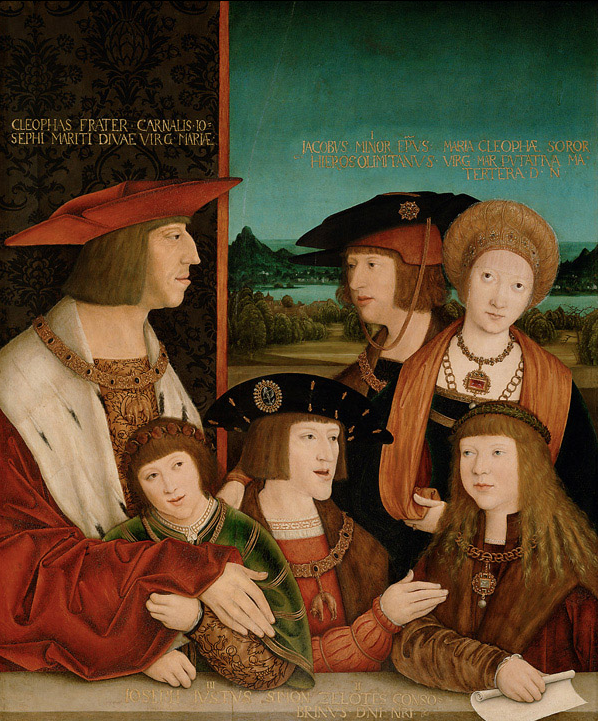Editor’s Note: The following comprises the seventeenth chapter of The Holy Roman Empire, by James Bryce (published 1871). All spelling in the original.
(Continued from Part 16)
CHAPTER XVII
THE RENAISSANCE: CHANGE IN THE CHARACTER OF THE EMPIRE
Wenzel, 1378-1400, Rupert, 1400-1410, Sigismund, 1410-1438
Council of Constance
In Frederick the Third’s reign the Empire sank to its lowest point. It had shot forth a fitful gleam under Sigismund, who in convoking and presiding over the council of Constance had revived one of the highest functions of his predecessors. The precedents of the first great œcumenical councils, and especially of the council of Nicæa, had established the principle that it belonged to the Emperor, even more properly than to the Pope, to convoke ecclesiastical assemblies from the whole Christian world. The tenet commended itself to the reforming party in the church, headed by Gerson, the chancellor of Paris, whose aim it was, while making no changes in matters of faith, to correct the abuses which had grown up in discipline and government, and limit the power of the Popes by exalting the authority of general councils, to whom there was now attributed an immunity from error superior even to that which resided in the successor of Peter. And although it was only the sacerdotal body, not the whole Christian people, who were thus made the exponents of the universal religious consciousness, the doctrine was nevertheless a foreshadowing of that fuller freedom which was soon to follow. The existence of the Holy Empire and the existence of general councils were, as has been already remarked, necessary parts of one and the same theory, and it was therefore more than a coincidence that the last occasion on which the whole of Latin Christendom met to deliberate and act as a single commonwealth was also the last on which that commonwealth’s lawful temporal head appeared in the exercise of his international functions. Never afterwards was he, in the eyes of Europe, anything more than a German monarch.
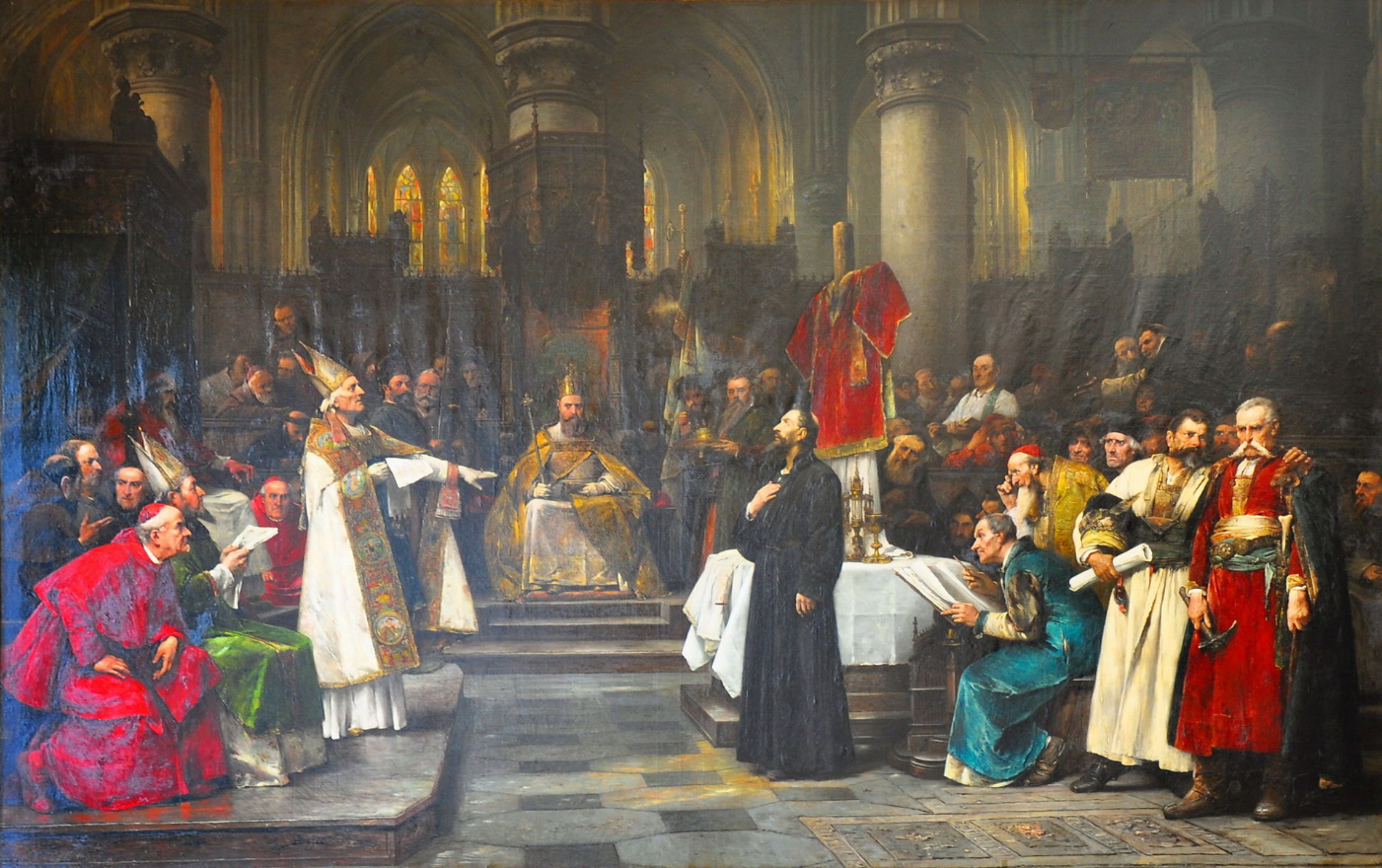
Weakness of Germany as compared with the other states of Europe
Albert II, 1438-1440, Frederick III, 1440-1493
It might seem doubtful whether he would long remain a monarch at all. When in A.D. 1493 the calamitous reign of Frederick the Third ended, it was impossible for the princes to see with unconcern the condition into which their selfishness and turbulence had brought the Empire. The time was indeed critical. Hitherto the Germans had been protected rather by the weakness of their enemies than by their own strength. From France there had been little to fear while the English menaced her on one side and the Burgundian dukes on the other: from England still less while she was torn by the strife of York and Lancaster. But now throughout Western Europe the power of the feudal oligarchies was broken; and its chief countries were being, by the establishment of fixed rules of succession and the absorption of the smaller into the larger principalities, rapidly built up into compact and aggressive military monarchies. Thus Spain became a great state by the union of Castile and Aragon, and the conquest of the Moors of Granada. Thus in England there arose the popular despotism of the Tudors. Thus France, enlarged and consolidated under Lewis the Eleventh and his successors, began to acquire that predominant influence on the politics of Europe which her commanding geographical position, the martial spirit of her people, and, it must be added, the unscrupulous ambition of her rulers, have secured to her in every succeeding century. Meantime there had appeared in the far East a foe still more terrible. The capture of Constantinople gave Turks a firm hold on Europe, and inspired them with the hope of effecting in the fifteenth century what Abderrahman and his Saracens had so nearly effected in the eighth—of establishing the faith of Islam through all the provinces that obeyed the Western as well as the Eastern Cæsars. The navies of the Ottoman Sultans swept the Mediterranean; their well-appointed armies pierced Hungary and threatened Vienna.
Loss of imperial territories
Nor was it only that formidable enemies had arisen without: the frontiers of Germany herself were exposed by the loss of those adjoining territories which had formerly owned allegiance to the Emperors. Poland, once tributary, had shaken off the yoke at the interregnum, and had recently wrested Prussia and Lusatz from the Teutonic knights. Bohemia, where German culture had struck deeper roots, remained a member of the Empire; but the privileges she had obtained from Charles the Fourth, and the subsequent acquisition of Silesia and Moravia, made her virtually independent. The restless Hungarians avenged their former vassalage to Germany by frequent inroads on her eastern border.
Italy
Imperial power in Italy ended with the life of Henry the Seventh. Rupert did indeed cross the Alps, but it was as the hireling of Florence; Frederick the Third received the Lombard crown, but it no longer conveyed the slightest power. In the beginning of the fourteenth century Dante still hopes the renovation of his country from the action of the Teutonic Emperors. Some fifty years later Matthew Villani sees clearly that they do not and cannot reign to any purpose south of the Alps. Nevertheless the phantom of imperial authority lingers on for a time. It is put forward by the Ghibeline tyrants of the cities to justify their attacks on their Guelfic neighbours: even resolute republicans like the Florentines do not yet venture altogether to reject it, however unwilling to permit its exercise. Before the middle of the fifteenth century, the names of Guelf and Ghibeline had ceased to have any sense or meaning; the Pope was no longer the protector nor the Emperor the assailant of municipal freedom, for municipal freedom itself had well-nigh disappeared. But the old war-cries of the Church and the Empire were still repeated as they had been three centuries before, and the rival principles that had once enlisted the noblest spirits of Italy on one or other side had now sunk into a pretext for wars of aggrandizement or of mere unmeaning hate. That which had been remarked long before in Greece was seen to be true here; the spirit of faction outlived the cause of faction, and became itself the new and prolific source of a useless, endless strife.
Burgundy
After Frederick the Third no Emperor was crowned in Rome, and almost the only trace of that connection between Germany and Italy to maintain which so much had been risked and lost, was to be found in the obstinate belief of the Hapsburg Emperors, that their own claims, though often purely dynastic and personal, could be enforced by an appeal to the imperial rights of their predecessors. Because Barbarossa had overrun Lombardy with a Transalpine host they fancied themselves entitled to demand duchies for themselves and their relatives, and to entangle the Empire in wars wherein no interest but their own was involved.
The kingdom of Arles, if it had never added much strength to the Empire, had been useful as an outwork against France. And thus its loss—Dauphiné passing over, partly in A.D. 1350, finally in 1457, Provence in 1486—proved a serious calamity, for it brought the French nearer to Switzerland, and opened to them a tempting passage into Italy. The Emperors did not for a time expressly renounce their feudal suzerainty over these lands, but if it was hard to enforce a feudal claim over a rebellious landgrave in Germany, how much harder to control a vassal who was also the mightiest king in Europe.
On the north-west frontier, the fall in A.D. 1477 of the great principality which the dukes of French Burgundy were building up, was seen with pleasure by the Rhinelanders whom Charles the last duke had incessantly alarmed. But the only effect of its fall was to leave France and Germany directly confronting each other, and it was soon seen that the balance of strength lay on the side of the less numerous but better organized and more active nation.
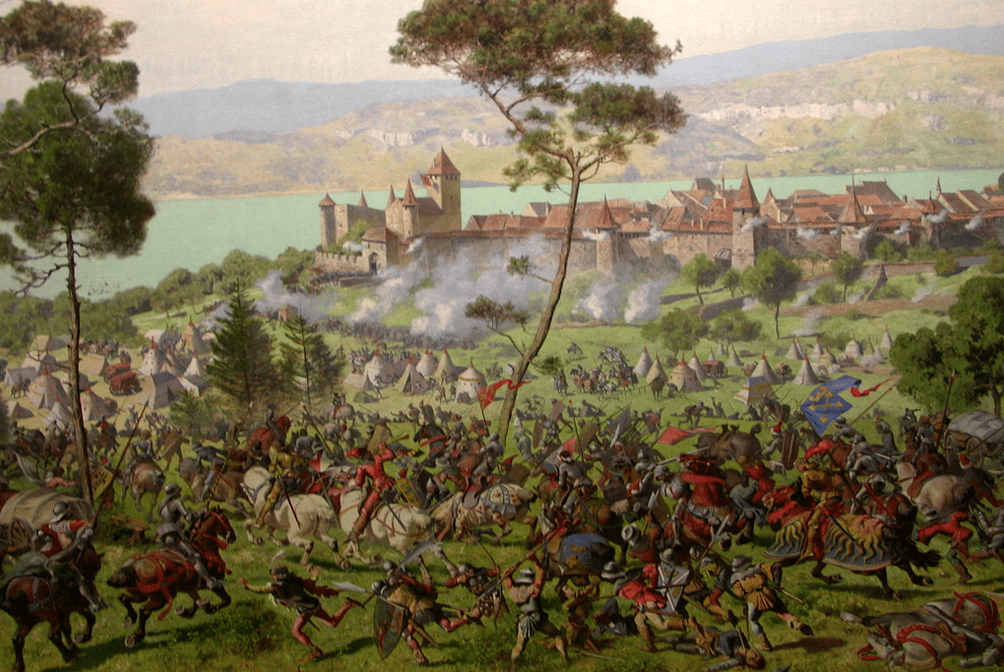
Switzerland
Switzerland, too, could no longer be considered a part of the Germanic realm. The revolt of the Forest Cantons, in A.D. 1313, was against the oppressions practised in the name of Albert count of Hapsburg, rather than against the legitimate authority of Albert the Emperor. But although several subsequent sovereigns, and among them conspicuously Henry the Seventh and Sigismund, favoured the Swiss liberties, yet while the antipathy between the Confederates and the territorial nobility gave a peculiar direction to their policy, the accession of new cantons to their body, and their brilliant success against Charles the Bold in A.D. 1477, made them proud of a separate national existence, and not unwilling to cast themselves loose from the stranded hulk of the Empire. Maximilian tried to reconquer them, but after a furious struggle, in which the valleys of Western Tyrol were repeatedly laid waste by the peasants of the Engadin, he was forced to give way, and in A.D. 1500 recognized them by treaty as practically independent. Not, however, till the peace of Westphalia, in A.D. 1648, was the Swiss Confederation in the eye of public law a sovereign state, and even after that date some of the towns continued to stamp their coins with the double eagle of the Empire.
Internal weakness
If those losses of territory were serious, far more serious was the plight in which Germany herself lay. The country had now become not so much an empire as an aggregate of very many small states, governed by sovereigns who would neither remain at peace with each other nor combine against a foreign enemy, under the nominal presidency of an Emperor who had little lawful authority, and could not exert what he had.
Influence of the theory of the Empire as an international power upon the Germanic constitution
There was another cause, besides those palpable and obvious ones already enumerated, to which this state of things must be ascribed. That cause is to be found in the theory which regarded the Empire as an international power, supreme among Christian states. From the day when Otto the Great was crowned at Rome, the characters of German king and Roman Emperor were united in one person, and it has been shewn how that union tended more and more to become a fusion. If the two offices, in their nature and origin so dissimilar, had been held by different persons, the Roman Empire would most probably have soon disappeared, while the German kingdom grew into a robust national monarchy. Their connection gave a longer life to the one and a feebler life to the other, while at the same time it transformed both. So long as Germany was only one of the many countries that bowed beneath their sceptre it was possible for the Emperors, though we need not suppose they troubled themselves with speculations on the matter, to distinguish their imperial authority, as international and more than half religious, from their royal, which was, or was meant to be, exclusively local and feudal. But when within the narrowed bounds of Germany these international functions had ceased to have any meaning, when the rulers of England, Spain, France, Denmark, Hungary, Poland, Italy, Burgundy, had in succession repudiated their control, and the Lord of the World found himself obeyed by none but his own people, he would not sink from being lord of the world into a simple Teutonic king, but continued to play in the more contracted theatre the part which had belonged to him in the wider. Thus did Germany instead of Europe become the sphere of his international jurisdiction; and her electors and princes, originally mere vassals, no greater than a Count of Champagne in France, or an Earl of Chester in England, stepped into the place which it had been meant that the several monarchs of Christendom should fill. If the power of their head had been what it was in the eleventh century, the additional dignity so assigned to them might have signified very little. But coming in to confirm and justify the liberties already won, this theory of their relation to the sovereign had a great though at the time scarcely perceptible influence in changing the German Empire, as we may now begin to call it, from a state into a sort of confederation or body of states, united indeed for some of the purposes of government, but separate and independent for others more important. Thus, and that in its ecclesiastical as well as its civil organization, Germany became a miniature of Christendom. The Pope, though he retained the wider sway which his rival had lost, was in an especial manner the head of the German clergy, as the Emperor was of the laity: the three Rhenish prelates sat in the supreme college beside the four temporal electors: the nobility of prince-bishops and abbots was as essential a part of the constitution and as influential in the deliberations of the Diet as were the dukes, counts, and margraves of the Empire. The world-embracing Christian state was to have been governed by a hierarchy of spiritual pastors, whose graduated ranks of authority should exactly correspond with those of the temporal magistracy, who were to be like them endowed with worldly wealth and power, and to enjoy a jurisdiction co-ordinate although distinct.
Position of the Emperor in Germany, compared with that of his predecessors in Europe
This system, which it was in vain attempted to establish in Europe during the eleventh and twelfth centuries, was in its main features that which prevailed in the Germanic Empire from the fourteenth century onwards. And conformably to the analogy which may be traced between the position of the archdukes of Austria in Germany and the place which the four Saxon and the two first Franconian Emperors had held in Europe, both being recognized as leaders and presidents in all that concerned the common interest, in the one case of the Christian, in the other of the whole German people, while neither of them had any power of direct government in the territories of local kings and lords; so the plan by which those who chose Maximilian emperor sought to strengthen their national monarchy was in substance that which the Popes had followed when they conferred the crown of the world on Charles and Otto. The pontiffs then, like the electors now, finding that they could not give with the title the power which its functions demanded, were driven to the expedient of selecting for the office persons whose private resources enabled them to sustain it with dignity. The first Frankish and the first Saxon Emperors were chosen because they were already the mightiest potentates in Europe; Maximilian because he was the strongest of the German princes. The parallel may be carried one step further. Just as under Otto and his successors the Roman Empire was Teutonized, so now under the Hapsburg dynasty, from whose hands the sceptre departed only once thenceforth, the Teutonic Empire tends more and more to lose itself in an Austrian monarchy.
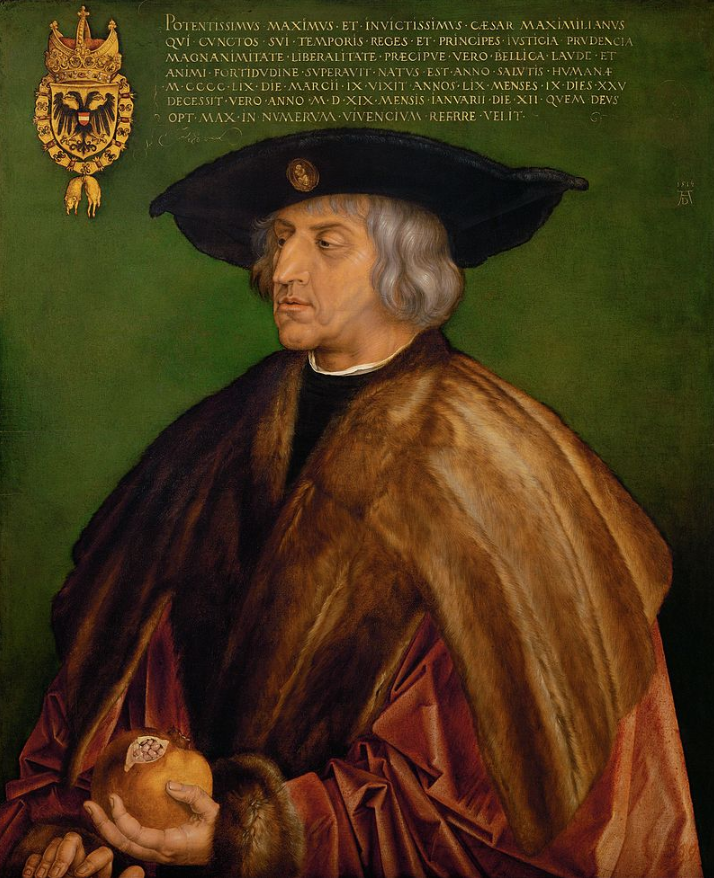
Beginning of the Hapsburg influence in Germany
Of that monarchy and of the power of the house of Hapsburg, Maximilian was, even more than Rudolph his ancestor, the founder. Uniting in his person those wide domains through Germany which had been dispersed among the collateral branches of his house, and claiming by his marriage with Mary of Burgundy most of the territories of Charles the Bold, he was a prince greater than any who had sat on the Teutonic throne since the death of Frederick the Second. But it was as archduke of Austria, count of Tyrol, duke of Styria and Carinthia, feudal superior of lands, in Swabia, Alsace, and Switzerland, that he was great, not as Roman Emperor. For just as from him the Austrian monarchy begins, so with him the Holy Empire in its old meaning ends. That strange system of doctrines, half religious half political, which had supported it for so many ages, was growing obsolete, and the theory which had wrought such changes on Germany and Europe, passed ere long so completely from remembrance that we can now do no more than call up a faint and wavering image of what it must once have been.
Character of the epoch of Maximilian
For it is not only in imperial history that the accession of Maximilian is a landmark. That time—a time of change and movement in every part of human life, a time when printing had become common, and books were no longer confined to the clergy, when drilled troops were replacing the feudal militia, when the use of gunpowder was changing the face of war—was especially marked by one event, to which the history of the world offers no parallel before or since, the discovery of America.
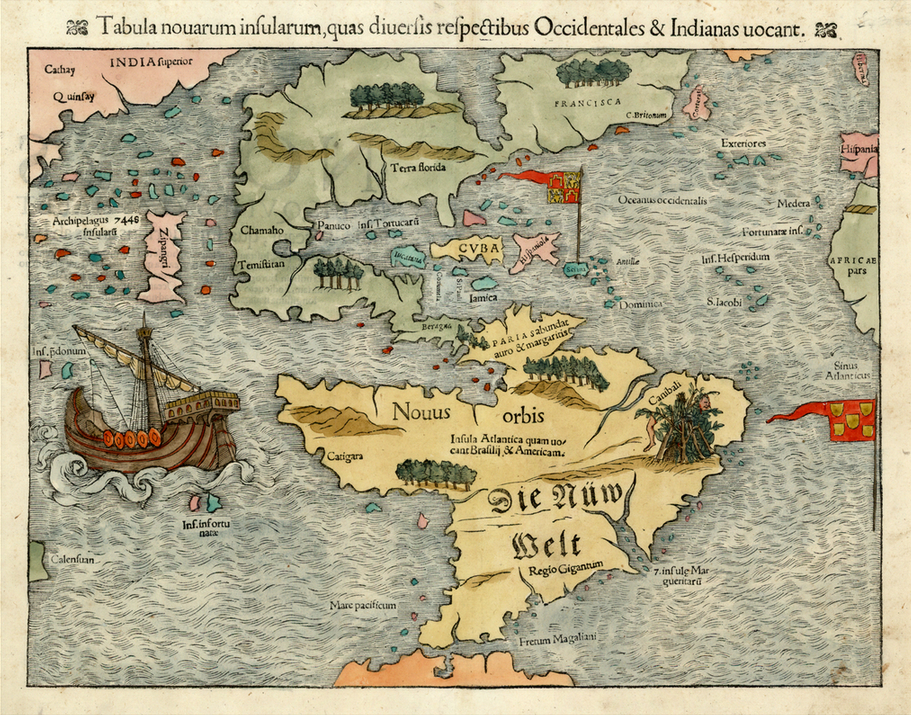
The discovery of America
The cloud which from the beginning of things had hung thick and dark round the borders of civilization was suddenly lifted: the feeling of mysterious awe with which men had regarded the firm plain of earth and her encircling ocean ever since the days of Homer, vanished when astronomers and geographers taught them that she was an insignificant globe, which, so far from being the centre of the universe, was itself swept round in the motion of one of the least of its countless systems. The notions that had hitherto prevailed regarding the life of man and his relations to nature and the supernatural, were rudely shaken by the knowledge that was soon gained of tribes in every stage of culture and living under every variety of condition, who had developed apart from all the influences of the Eastern hemisphere. In A.D. 1453 the capture of Constantinople and extinction of the Eastern Empire had dealt a fatal blow to the prestige of tradition and an immemorial name: in A.D. 1492 there was disclosed a world whither the eagles of all-conquering Rome had never winged their flight. No one could now have repeated the arguments of the De Monarchia.
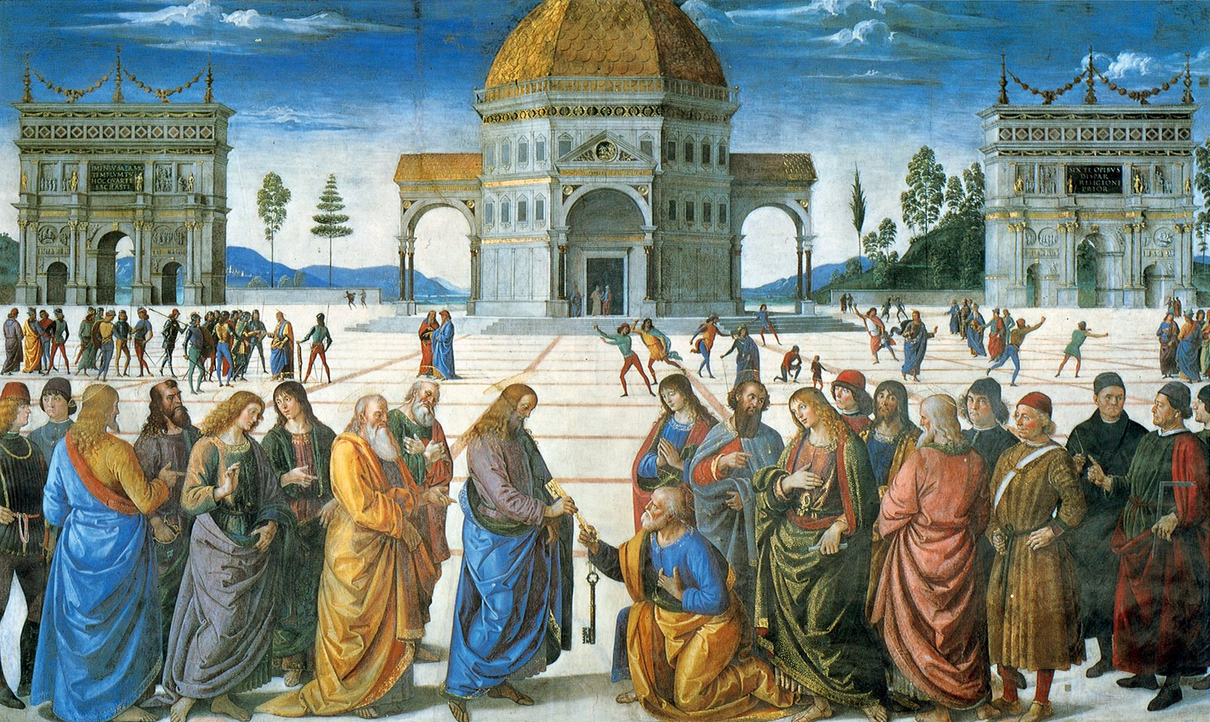
The Renaissance
Another movement, too, widely different, but even more momentous, was beginning to spread from Italy beyond the Alps. Since the barbarian tribes settled in the Roman provinces, no change had come to pass in Europe at all comparable to that which followed the diffusion of the new learning in the latter half of the fifteenth century. Enchanted by the beauty of the ancient models of art and poetry, more particularly those of the Greeks, men came to regard with aversion and contempt all that had been done or produced from the days of Trajan to those of Pope Nicholas the Fifth. The Latin style of the writers who lived after Tacitus was debased: the architecture of the Middle Ages was barbarous: the scholastic philosophy was an odious and unmeaning jargon: Aristotle himself, Greek though he was, Aristotle who had been for three centuries more than a prophet or an apostle, was hurled from his throne, because his name was associated with the dismal quarrels of Scotists and Thomists. That spirit, whether we call it analytical or sceptical, or earthly, or simply secular, for it is more or less all of these—the spirit which was the exact antithesis of mediæval mysticism, had swept in and carried men away, with all the force of a pent-up torrent. People were content to gratify their tastes and their senses, caring little for worship, and still less for doctrine: their hopes and ideas were no longer such as had made their forefathers crusaders or ascetics: their imagination was possessed by associations far different from those which had inspired Dante: they did not revolt against the church, but they had no enthusiasm for her, and they had enthusiasm for whatever was fresh and graceful and intelligible. From all that was old and solemn, or that seemed to savour of feudalism or monkery, they turned away, too indifferent to be hostile. And so, in the midst of the Renaissance, so, under the consciousness that former things were passing from the earth, and a new order opening, so, with the other beliefs and memories of the Middle Age, the shadowy rights of the Roman Empire melted away in the fuller modern light. Here and there a jurist muttered that no neglect could destroy its universal supremacy, or a priest declaimed to listless hearers on its duty to protect the Holy See; but to Germany it had become an ancient device for holding together the discordant members of her body, to its possessors an engine for extending the power of the house of Hapsburg.
Empire henceforth German
Henceforth, therefore, we must look upon the Holy Roman Empire as lost in the German; and after a few faint attempts to resuscitate old-fashioned claims, nothing remains to indicate its origin save a sounding title and a precedence among the states of Europe. It was not that the Renaissance exerted any direct political influence either against the Empire or for it; men were too busy upon statues and coins and manuscripts to care what befel Popes or Emperors. It acted rather by silently withdrawing the whole system of doctrines upon which the Empire had rested, and thus leaving it, since it had previously no support but that of opinion, without any support at all.
Attempts to reform the Germanic Constitution
During Maximilian’s eventful reign several efforts were made to construct a new constitution, but it is to German, rather than to imperial history that they properly belong. Here, indeed, the history of the Holy Empire might close, did not the title unchanged beckon us on, and were it not that the events of these later centuries may in their causes be traced back to times when the name of Roman was not wholly a mockery. It may be enough to remark that while the preservation of peace and the better administration of justice were in some measure attained by the Public Peace and Imperial Chamber, established in A.D. 1495, schemes still more important failed through the bad constitution of the Diet, and the unconquerable jealousy of the Emperor and the Estates. Maximilian refused to have his prerogative, indefinite though weak, restricted by the appointment of an administrative council, and when the Estates extorted it from him, did his best to ensure its failure. In the Diet, which consisted of three colleges, electors, princes, and cities, the lower nobility and knights of the Empire were unrepresented, and resented every decree that affected their position, refusing to pay taxes in voting which they had no voice. The interests of the princes and the cities were often irreconcilable, while the strength of the crown would not have been sufficient to make its adhesion to the latter of any effect. The policy of conciliating the commons, which Sigismund had tried, succeeding Emperors seldom cared to repeat, content to gain their point by raising factions among the territorial magnates, and so to stave off the unwelcome demand for reform.
Causes of the failure of the projects of reform
After many earnest attempts to establish a representative system, such as might resist the tendency to local independence and cure the evils of separate administration, the hope so often baffled died away. Forces were too nearly balanced: the sovereign could not extend his personal control, nor could the reforming party limit him by a strong council of government, for such a measure would have equally trenched on the independence of the states. So ended the first great effort for German unity, interesting from its bearing on the events and aspirations of our own day; interesting, too, as giving the most convincing proof of the decline of the imperial office. For the projects of reform did not propose to effect their objects by restoring to Maximilian the authority his predecessors had once enjoyed, but by setting up a body which would resemble far more nearly the senate of a federal state than the administrative council which surrounds a monarch. The existing system developed itself further: relieved from external pressure, the princes became more despotic in their own territories: distinct codes were framed, and new systems of administration introduced: the insurgent peasantry were crushed down with more confident harshness. Already had leagues of princes and cities been formed (that of Swabia was one of the strongest forces in Germany, and often the monarch’s firmest support); now alliances begin to be contracted with foreign powers, and receive a direction of formidable import from the rivalry which the pretensions on Naples and Milan of Charles the Eighth and Lewis the Twelfth of France kindled between their house and the Austrian. It was no slight gain to have friends in the heart of the enemy’s country, such as French intrigue found in the Elector Palatine and the count of Würtemberg.
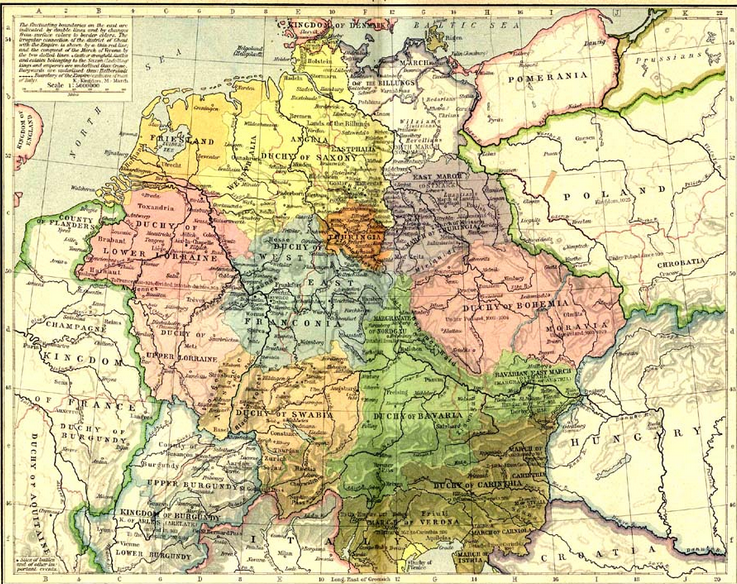
Germanic nationality
Nevertheless this was also the era of the first conscious feeling of German nationality, as distinct from imperial. Driven in on all hands, with Italy and the Slavic lands and Burgundy hopelessly lost, Teutschland learnt to separate itself from Welschland. The Empire became the representative of a narrower but more practicable national union.
Change of Titles
It is not a mere coincidence that at this date there appear several notable changes of style. ‘Nationis Teutonicæ’ (Teutscher Nation) is added to the simple ‘sacrum imperium Romanum.’ The title of ‘Imperator electus,’ which Maximilian obtains leave from Pope Julius the Second to assume, when the Venetians prevent him from reaching his capital, marks the severance of Germany from Rome.
The title ‘Imperator Electus’
No subsequent Emperor received his crown in the ancient capital (Charles the Fifth was indeed crowned by the Pope’s hands, but the ceremony took place at Bologna, and was therefore of at least questionable validity); each assumed after his German coronation the title of Emperor Elect, and employed this in all documents issued in his name. But the word ‘elect’ being omitted when he was addressed by others, partly from motives of courtesy, partly because the old rules regarding the Roman coronation were forgotten, or remembered only by antiquaries, he was never called, even when formality was required, anything but Emperor. The substantial import of another title now first introduced is the same. Before Otto the First, the Teutonic king had called himself either ‘rex’ alone, or ‘Francorum orientalium rex,’ or ‘Francorum atque Saxonum rex:’ after A.D. 962, all lesser dignities had been merged in the ‘Romanorum Imperator.’ To this Maximilian appended ‘Germaniæ rex,’ or, adding Frederick the Second’s bequest, ‘König in Germanien und Jerusalem.’ It has been thought that from a mixture of the title King of Germany, and that of Emperor, has been formed the phrase ‘German Emperor,’ or less correctly, ‘Emperor of Germany.’ But more probably the terms ‘German Emperor’ and ‘Emperor of Germany’ are nothing but convenient corruptions of the technical description of the Germanic sovereign.
That the Empire was thus sinking into a merely German power cannot be doubted. But it was only natural that those who lived at the time should not discern the tendency of events. Again and again did the restless and sanguine Maximilian propose the recovery of Burgundy and Italy,—his last scheme was to adjust the relations of Papacy and Empire by becoming Pope himself: nor were successive Diets less zealous to check private war, still the scandal of Germany, to set right the gear of the imperial chamber, to make the imperial officials permanent, and their administration uniform throughout the country. But while they talked the heavens darkened, and the flood came and destroyed them all.

